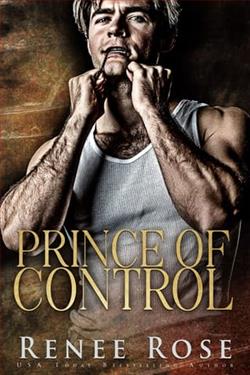Page 80 of Royal Bargain
Inside, it smells like old paper and floor wax. Cold marble underfoot. Everything sterile, polished, and pretending it isn’t a battlefield.
I head for the courtroom, ignoring the buzz around me. Every step I take feels deliberate. Heavy. I want people to see me. Let them whisper. Let them report it. Let Anatoly know I showed up.
The gallery’s half-full when I slip inside. A few reporters. A couple of suits I recognize from past court cases. But mostly it’s Russians. I can feel it—tight posture, sharp suits, eyes that flick toward me and then quickly away.
I sit in the second row, center, just behind the prosecution’s table. Front and fucking center. I fold my hands in my lap and wait.
Ten minutes later, the doors open.
He walks in, flanked by two officers. No cuffs. Of course not. Just enough security to pretend it’s not theater. His suit’s tailored, charcoal gray with a crisp white shirt. Polished shoes. He walks like he owns the building.
But when his eyes scan the room, they land on me.
And he stops—just for a beat.
It’s subtle. Barely a flicker. But I catch it. That faint narrowing of his gaze. That almost imperceptible tension in his jaw. He doesn’t speak. Doesn’t gesture. Just looks at me.
And I look right back.
He knows why I’m here. I don’t have to say a word.
She’s not yours anymore.
You don’t get to pull her strings. Not while I’m breathing.
We hold the stare until the bailiff clears his throat and Anatoly finally steps forward to take his seat at the defense table. Even then, I feel his presence like a weight pressing down on the air in the room.
The trial begins. Motions. Opening remarks. A parade of legalese. I half-listen. I’m not here for the case. I’m here for him.
An hour in, the judge calls for a fifteen-minute recess.
People shuffle to their feet. I stay seated, eyes still on the front of the room.
That’s when a man breaks from the defense table—a tall lawyer with a deep navy suit and smug energy. He heads toward me, steps measured and casual, but I can tell he’s sizing me up.
He stops just beside my bench and leans in slightly.
“Mr. Brannagan,” he says smoothly, “my client would like a word.”
I glance past him toward the defense table. Anatoly isn’t looking at me now—he’s speaking to another lawyer, calm as ever—but I know this was planned.
I arch an eyebrow. “And if I say no?”
The man smirks, unfazed. “Then I’ll let him know. But he said to tell you it’s about Annika.”
Of course it is.
I don’t move right away. Just sit there, feeling the pulse in my jaw. Finally, I stand.
“Lead the way.”
The lawyer leads me through a side door and down a narrow hallway, away from the crowd, away from the press. The walls here are thicker. Soundproofed. Meant for deals made in whispers and threats masked as diplomacy.
He opens a door near the end of the corridor. A private meeting room—clean, neutral, table and chairs bolted to the floor like anyone might flip them otherwise. There’s a pitcher of water on the table, untouched. The air smells faintly of metal and old ink.
Anatoly’s already inside.
He doesn’t rise when I enter. Just sits there, one leg crossed over the other, like this is his boardroom and I’m late to a meeting. His expression is unreadable. Calm. Controlled. But his eyes are sharp. Calculating.















